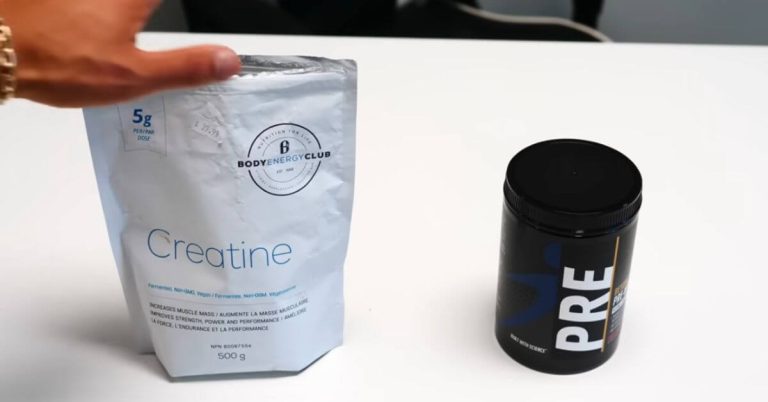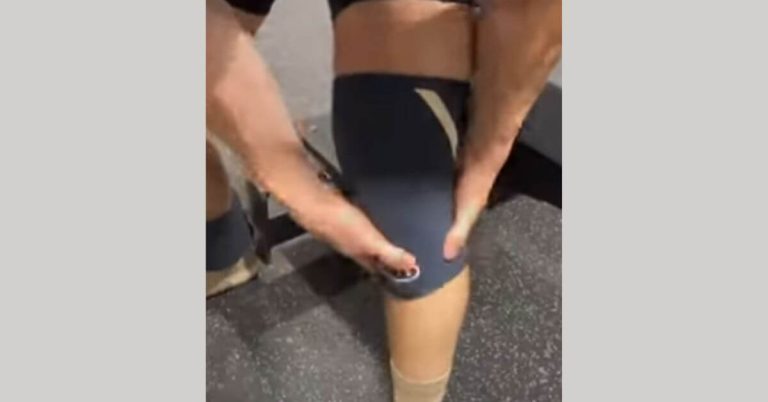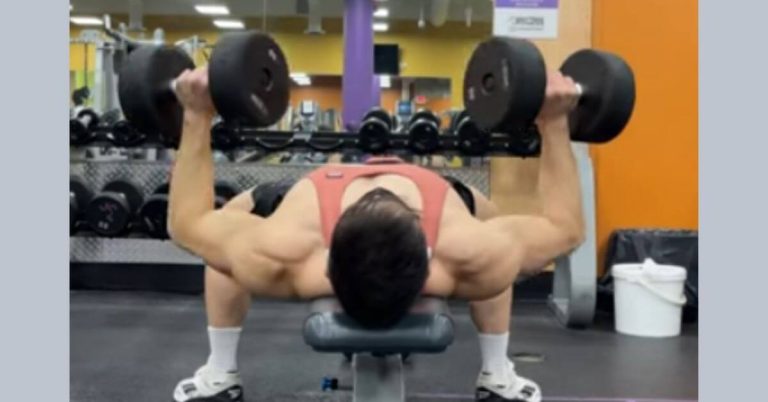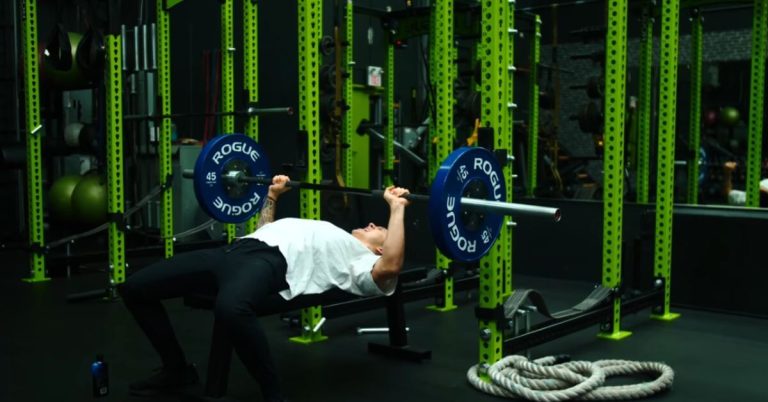Why Do I Look Bigger But Weigh Less: Unraveling the Mystery
Last Updated on October 25, 2023 by Justin Harris
Why Do I Look Bigger But Weigh Less: If you look bigger but weigh less, it could be due to losing water weight or muscle mass, or both. This phenomenon can occur when you lose weight rapidly or through extreme calorie restriction and end up losing muscle along with fat.

Additionally, muscle weighs more than fat but takes up less room, so someone with more muscle but the same weight will appear smaller in size. Therefore, it is possible to lose weight but still look bigger. This is because weight alone does not accurately reflect body composition or how much space your body occupies.
Demystifying The Paradox: Looking Bigger, Weighing Less
Have you ever wondered why you may appear bigger but weigh less? It could be due to factors such as water weight loss, muscle mass reduction, or a combination of both. This phenomenon can occur when losing weight rapidly or through extreme calorie restriction, leading to muscle loss along with fat.
Reasons for Looking Bigger But Weighing Less:
- Muscle weighs more than fat, but takes up less room (it’s denser), so someone with more muscle but the same weight will look smaller in size.
- Water retention can cause the appearance of being bigger even when weight is lost.
- Rapid weight loss or extreme calorie restriction can lead to muscle loss along with fat, making one look bigger.
- The transition period during weight loss where muscle gain may occur before fat loss can result in temporarily looking bigger before getting smaller.
- Body composition, not solely weight, determines appearance. Dense muscle tissue takes up less space than fat, so two individuals with the same weight may have different sizes.
Body Composition: The Key To The Mystery
Have you ever wondered why you may look bigger but weigh less? The answer lies in understanding the difference between weight and body composition. While the scale may indicate a decrease in weight, there are several factors that can contribute to a larger appearance.
One important factor to consider is muscle density and fat distribution. Muscle weighs more than fat but takes up less room, making someone with more muscle but the same weight appear smaller in size. On the other hand, fat is less dense than muscle, so if you put on fat and lose muscle, you may be chubbier but weigh less.
Another reason could be water retention, which is a common cause of looking fatter while losing weight. Additionally, muscle gain before fat loss can result in a transition period where you may appear bigger before getting smaller.
It’s important to remember that weight alone does not provide a complete picture of your body composition. Factors such as muscle mass, fat percentage, and water retention play a significant role in how you look and feel. So, don’t be discouraged if the scale doesn’t reflect your desired appearance. Focus on achieving a healthy body composition through a balanced diet and regular exercise.
Read Also,
- Why Does Creatine Taste So Bad?
- Why Does Creatine Make Me Nauseous
- Why Does Creatine Powder Jump?
- Why Do Squats Make My Heart Race?
- If I Eat 2000 Calories And Burn 500
- Why Does Pre Workout Make Me Sleepy?
- Why Do Some Cable Machines Feel Heavier?
- If You Have Diarrhea Do the Calories Count?
- Why Do My Shoulders Pop When I Do Lateral Raises?
- Why Do My Muscles Look Smaller After Working Out
Water Retention: Influencing Perception
Losing weight but still looking bigger can be attributed to factors like water retention or loss of muscle mass. When muscle is denser than fat, it takes up less space, resulting in a smaller appearance despite weighing the same. Additionally, rapid weight loss or extreme calorie restriction can lead to muscle loss, making one appear larger.
Water retention can have a significant impact on how our bodies appear, leading to the question of why we may look bigger despite weighing less. One possible reason is the role of muscle mass versus fat. Although muscle weighs more than fat, it takes up less space and is denser. As a result, a person with more muscle but the same weight may appear smaller in size compared to someone with less muscle mass. Additionally, water retention can contribute to the perception of being larger.
This common occurrence can cause bloating and swelling, leading to a temporary increase in body size. Rapid weight loss or extreme calorie restriction can also contribute to muscle loss, which can further impact how we appear. Therefore, weight loss alone may not always result in a slimmer appearance, as factors such as muscle mass and water retention influence our perception of size.
It can be confusing when you look bigger but weigh less. One reason for this could be the difference in density between muscle and fat. Muscle weighs more than fat but takes up less space. So, if you have more muscle and less fat, you may weigh less but look bigger in size.
On the other hand, if you lose muscle and gain fat, you might weigh less but appear bigger. Additionally, when you lose weight rapidly or through extreme calorie restriction, you may lose muscle mass along with fat, leading to a reduction in overall weight but a potential increase in visual size. It’s important to remember that weight alone does not accurately reflect your body composition.
Factors such as muscle and fat distribution, water retention, and body shape can all contribute to the difference between weight and visual perception. So, while the scale may show a lower number, it’s essential to consider other factors to fully understand your body’s changes.
Instead of solely focusing on the scale, pay attention to how you feel, your overall health, and body measurements. This will give you a more holistic view of your progress and help you achieve your desired body composition.
Factors Contributing To The Paradox: Exploring The Possibilities
It is possible to lose weight but still appear to look fatter. This phenomenon can occur for several reasons:
- Muscle Loss: When you lose weight rapidly or through extreme calorie restriction, you may lose muscle mass along with fat.
- Water Retention: One of the main causes of why you may have lost weight but look fatter is because of water retention. Water retention is a very common cause of this paradox.
Muscle weighs more than fat but takes up less room in the body, so someone with more muscle but the same weight will look smaller in size. Additionally, your body composition plays a role in how you appear. Dense muscle tissue takes up less space than fat, so even if you weigh the same as someone else, you may appear slimmer.
It’s important to remember that weight alone is not a comprehensive indicator of body composition. Factors such as muscle and water retention can influence how you look, even if the number on the scale doesn’t change significantly. Therefore, it’s crucial to focus on overall health and body composition rather than solely on weight.
Conclusion
The phenomenon of looking bigger but weighing less can be attributed to various factors such as water retention, changes in body composition, and muscle loss. Muscle is denser than fat, so even if you weigh the same or more, you may appear slimmer if you have more muscle mass.
Additionally, rapid weight loss or extreme calorie restriction can result in muscle loss, making you look bigger despite losing weight. It’s important to focus on overall body composition and not just the number on the scale when gauging your progress towards a healthy body.






